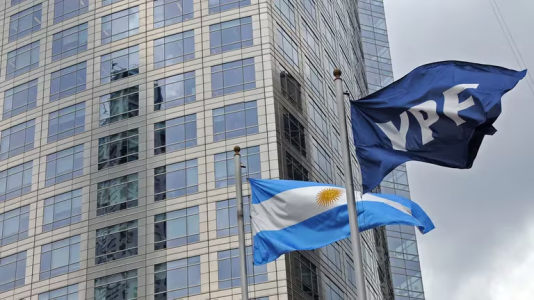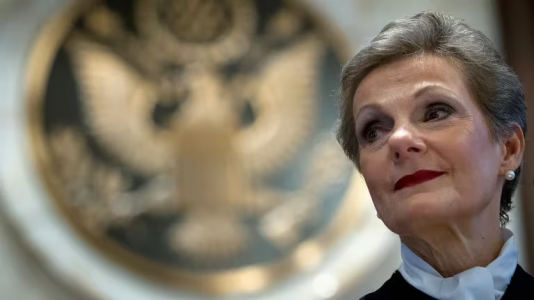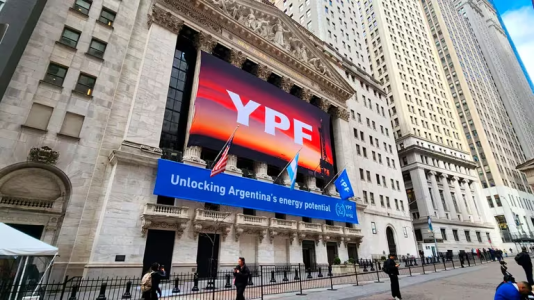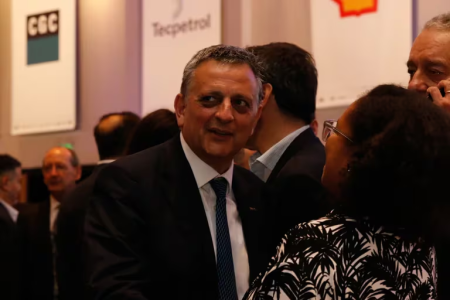All the Answers
Well-known member
Can Argentina lose control of YPF?: sovereign immunity and the case of the Venezuelan oil company - Infobae

Source:

¿Puede perder Argentina el control de la YPF?: la inmunidad soberana y el caso de la petrolera venezolana
Burford, que ganó el juicio en primera instancia por medio del cual Argentina fue condenada a pagar USD 16.000 millones por expropiar mal la empresa, solicitó que se le transfiera el 51% de las acciones de la petrolera local que están en manos del Estado
April 22, 2024
Burford, who won the trial in the first instance through which Argentina was sentenced to pay USD 16,000 million for improperly expropriating the company, requested that 51% of the shares of the local oil company that are in the hands of the State be transferred to him.
By Sebastian Catalano

The YPF tower in Puerto Madero
Last Friday the request of the winners of the trial for the expropriation of YPF was known: they want to keep the shares that the Argentine State has in YPF . Strictly speaking, this measure would lead to them taking operational control of the company for whose expropriation in 2012 – poorly carried out, according to the US justice system last year – the country was sentenced to pay USD 16,000 million, a figure that increases by the interests that run day by day.
Does Burford, the English law firm that bought the right to litigate two former minority shareholders of the national oil company who went to court in the United States claiming to have been harmed by local expropriation malpractice, really want to stay with the company? It is very likely that not and that he only seeks repercussions to achieve his real mission: to collect; or, at least, negotiate in that sense. Either way, he will pocket billions: he paid about 30 million euros to keep the lawsuits, he already sold part of the trial for USD 236 million and is now the main beneficiary of the multimillion-dollar conviction.
Burford – who for his actions is compared by many to a “vulture fund” – formally asked Judge Loretta Preska , of the southern Manhattan court that hears cases linked to Wall Street, where YPF has been listed for 30 years, for the oil company's shares. . She did it in a reserved manner, but Argentina protested and the judge agreed and on Friday the request was made public. Today she formally confirmed the request and assured that "it seems that the only way that exists for Argentina to deal with this issue is through judicial action." Then there will be a series of presentations from both parties and Preska will decide in June.

Loretta Preska (Reuters)
Argentina appealed the conviction in the US, but the case in the first instance continues. “Waiting for the Court of Appeals to publish its decision on the YPF case is not a responsible strategy. I admit that this Government has other priorities, and I also understand that the YPF issue is toxic and that no one wants to touch it. But we Argentines have the habit of ignoring problems, ignoring them and blaming others so as not to face them,” Sebastián Maril , CEO of Latin Advisors and an expert in this case, wrote in X.
“This case has been in international courts for 9 years and has always been complicated. What happened on Friday is a new example that, I tell you, will not be the last. The Court of Appeals will take another 9 to 12 months to publish its ruling. Let's use them to prepare the country in case the ruling is adverse, but let's not wait 12 months to just start paying attention to it,” he added.
Analyst Daniel Montamat , former president of the oil company, confessed to being worried about the latest news. “Preska put YPF through the window again in the case when, after the sentence, he talked about guarantees and put there the shares that the State has in the company. Argentina has already paid Repsol for 51% of the company with securities for USD 10,000 million, which the Spanish company immediately sold for half. Burford would now execute part of the sentence on those actions without the State receiving a single peso for something it has already paid. That the shares have been put as collateral is very worrying: it would be a de facto privatization for which, in addition, zero would be charged. There are not many elements for this to be reversed in the jurisdiction of the United States. The Government must give priority to this issue or we will be left without control of the company, which will also not be able to access global credit markets. Bye to the flagship of the development of Vaca Muerta's potential,” Montamat highlighted.

YPF has been listed on Wall Street for 30 years
Daniel Apud , former Secretary of Energy, believes that if the option is to exchange the sentence for the shares, about USD 5,000 million, Argentina should analyze it, although he recognizes that it is a very difficult exchange to carry out. “It was reflected in the Expropriation law, which requires the support of two-thirds of Congress, something that could happen today. Furthermore, and although the transfer was never carried out, of the State's shares, 23% corresponds to the provinces. He worries me that Argentina is not negotiating. If he goes into contempt it will be very complicated,” he highlighted.
“The plaintiffs have a ruling in their favor, which is not final. And YPF is outside the lawsuit, for the moment. Meanwhile, the plaintiffs are looking to run everything now. And that is why they ask for the transfer of the shares: Preska already said that the shares of the provinces are not touched. Eventually, if there is a transfer of shares and the provinces come together, they could be the main shareholder. For now it is an order, we will see how it goes,” said Juan José Carbajales , from the consulting firm Paspartú and former Undersecretary of Hydrocarbons.
Background
So, can Argentina lose control of YPF by order of a US court? The answer is “yes”, regardless of how difficult it would be. “There are few precedents of similar situations. When it comes to issues of this type, Argentina is always a pioneer,” Maril summarized.With many nuances, perhaps a similar case could be that of the Venezuelan Citgo, a refiner that is a subsidiary of PDVSA in the US. After a long process, the Justice of that country authorized the auction of the company's assets for other debts and complaints made to the state chaired by Nicolás Maduro by American companies. One of them is the mining company Crystallex, which filed a lawsuit after Hugo Chávez expropriated a gold mine in southern Venezuela. There are other corporate debts and accusations linked to bonds issued by the South American country.
“The Court of Appeals is going to take another 9 to 12 months to publish its ruling. Let's use them to prepare the country in case the ruling is adverse” (Maril)
At the beginning of this month, in addition, the United States Supreme Court assured that it will not review the ruling that authorized the auction. There are at least 12 interested companies and they will seek to settle debts of about USD 20,000 million. However, in March, the New York Court of Appeals ruled in favor of PDVSA bonds being subject to Venezuelan law, something that casts further doubt on the Citgo case and also raises again the jurisdiction that the US courts has on sovereign issues, regardless of whether there are companies listed on Wall Street involved. Or I know, there is no specific position in this controversial cause.
Another case could be taken that also links Preska with Argentina. This is Bainbridge, a Bahamian holdout that never entered into the exchanges that the country made after the default in 2001. He is one of the few that is still litigating. That “vulture fund” asked the judge to order Argentina to transfer funds from the BCRA to the US and thus be able to collect. Preska rejected the request last year with two arguments: he said that it was a very non-specific request and also that he believed that those funds, if any were transferred by Argentina, could be covered by the Sovereign Immunities Act . Due to this rule, none of these funds could collect anything from the country: the most extreme case was the seizure of the Frigate Libertad, which had a seizure request in Ghana. When Argentina appeared before the court the request was dismissed.

Horacio Marín, the new president of YPF
As always, there is another half of the library that says otherwise. “I do not believe that the Sovereign Immunities Act prevents the seizure of YPF shares. They are seizable because there is commercial activity of the State, the company is listed there. Furthermore, Preska rejected at the time applying this act that would have prevented the entire trial and sentence against the State. The shares can be seized, but if you want to execute the sentence in Argentina, you must go through a procedure called executor , which is to validate the foreign sentence locally. It is very difficult for that to happen at the local level,” explained another source who knows the cause.
“What they can probably do is execute the sentence in the US and they will ask YPF to record the transfer of the shares in its books. The company will comply or not, but pressure will come on and there could be consequences, such as problems with the price,” he added.
Another point to keep in mind is that the YPF shares held by the State are almost all registered in Argentina, except for a part that is listed on Wall Street in ADR ( American Depositary Receipt) format , physical securities that support the deposit in a US bank. of shares of companies whose companies were incorporated outside that country. That is why Burford asked Preska for the transfer of shares instead of directly requesting an embargo.

